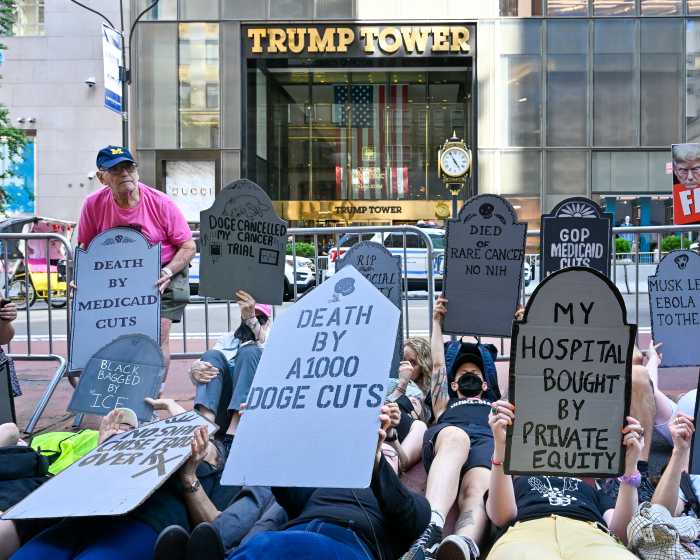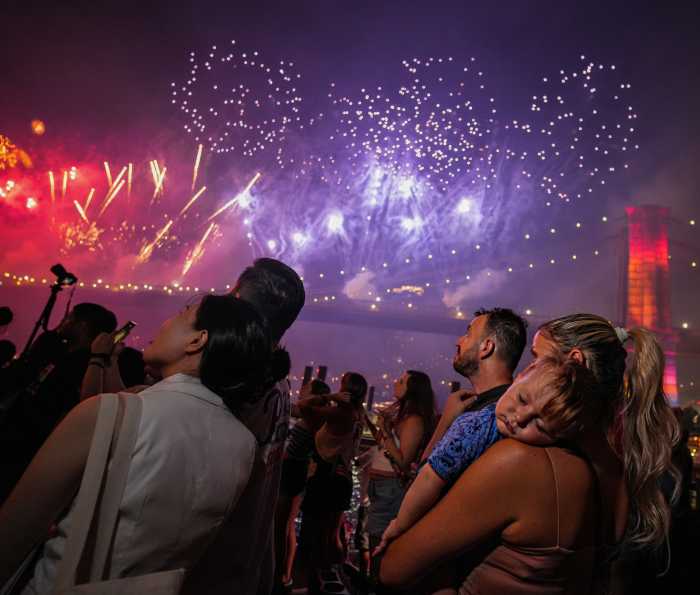
A Fort Greene resident says his attempts to discuss noise complaints with organizers of the Afropunk music festival in Brooklyn devolved into threats and online harassment, leaving him fearful for his family’s safety.
“It was the whole shoot first and ask questions later mentality…,” said the resident, who did not want to be named due to the threats.
Afropunk, which draws about 60,000 people, is held every year at Commodore Barry Park in Fort Greene. This year’s festival — whose headliners include Solange, Anderson .Paak and Thundercat — will take place on Aug. 26 and 27.
The native New Yorker, who has lived in Brooklyn for over a decade, said he has sent several emails to Afropunk about noise issues over the years, but was met only with silence from organizers.
So when Community Board 2 agreed to help set up a closed-door meeting with festival organizers and encouraged him to invite other neighbors, he jumped at the opportunity.
“I personally am a fan of the music, and have worked (with) several of the bands that have played the festival, but I have a young child to care for, and the noise levels were too loud and late,” he said. “That’s why I decided to reach out to the community board to see if they could get the organizers to respond. Thanks to the community board, we were able to schedule a meeting.”
But after word got out that he had asked neighbors who live near the park to join him at the meeting, he said strangers started sending him nasty messages and threats online.
“I got so many messages threatening me and my family with violence. All said I was a racist, a gentrifier, a honky…” he said, adding that he wants to shield his family from the harassment so he hasn’t filed a police report.
The response, he said, also shocked him considering Afropunk espouses a “no hate” mantra.
“Most of those attacking me didn’t even have the facts straight,” he added.
Claims that he was trying to shut the festival down were completely false, he said. The meeting was only to address solutions to noise levels for neighbors who live near the park.
“Afropunk is an international commercial music festival that is held in a small neighborhood park within steps of the homes,” he said. “The concert had previously gone past midnight on a Sunday with speakers close to residential buildings with no sound barriers implemented.”
The meeting, which took place on Aug. 8, consisted of six neighbors, two festival organizers and one representative from the community board, he said. A representative from Community Board 2 confirmed the “informal” meeting took place. A request for comment from Afropunk was not returned.
At first, he said the Afropunk organizers appeared receptive to the complaints and suggested solutions, including the installation of noise dampeners around the park’s fencing and moving the speakers so they face away from homes, but ultimately no changes were promised.
“They said they would look into it, but since we had the meeting they emailed us and told us they couldn’t do this, which was extremely disappointing,” he said.
Festival organizers also sent the neighbors information on the positive impact Afropunk has had on the community, including its Afropunk Army, a volunteer activist group.
“The meeting was a good starting point for addressing noise issues,” he said. “The city as well as the concert organizers need to ensure sound levels and concert times are followed in accordance with permits issued.”
Despite the outcome of the meeting, the threats and harassment online have continued, he said, even though he deactivated his social media accounts. “Sadly, still days later, I see people are posting my photo online with threats.”
When he told Afropunk of the online harassment over the meeting, he said a representative failed to address the crux of the issue and instead said the festival wouldn’t issue a statement because it would only inflame the harassers further.
“I understand the event is loved by many, and it should continue, but the event organizers and the attendees should understand that it’s hard for some of the people who live here, especially when it goes until 12:30 a.m. and you have to be up work early the next day,” he said, referring to the 2015 festival that played past its 10 p.m. curfew on a Sunday.
The issue at its core, he said, is that Afropunk has become a massive commercial concert in a residential neighborhood with virtually no sound mitigation. And although Afropunk was unwilling to institute noise mitigation efforts, he hopes that will change in the future.
“It was never about canceling the festival, nor was it about race, it was about making the noise tolerable for those who live here,” he said. “I hope next year the festival will implement my suggestions of moving the stage in the opposite direction and installing sound dampeners around the fencing as well as enforcing the curfew. All of the changes I recommended will not impact anyone’s enjoyment of the show and will make everyone happy.”






































